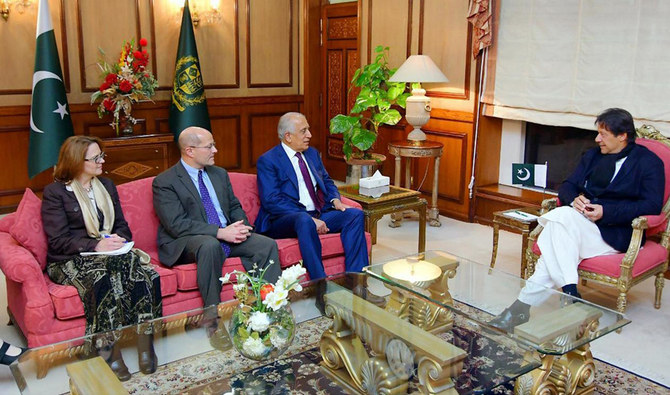ISLAMABAD: The Foreign Office has said Pakistan has been playing the role of a facilitator in peace talks between the Afghan Taliban and US officials and urged them both to refrain from hostile engagements.
On Friday, Zalmay Khalilzad, the US special representative for Afghan reconciliation, expressed disappointment after the collapse of a planned meeting between the Taliban and a group of Afghan politicians in Qatar that exposed the deep divisions blocking efforts to end the 17-year-long war.
The Doha meeting was intended to prepare the ground for possible future talks by building familiarity among Taliban officials and representatives of the Afghan state created after the U.S.-led campaign that toppled the Taliban government in 2001. A similar encounter was held in Moscow in February.
Up until now the Taliban have refused to hold direct talks with the Afghan government which it considers to be a foreign-appointed puppet regime.
“Pakistan is doing everything in its capacity to facilitate the peace process, and would keep urging both sides to restrain from active hostility,” foreign office spokesman Dr Mohammad Faisal said at a weekly press briefing on Thursday.
In response to a question by Arab News about the latest round of talks, referred to as the Doha Process, Faisal said: “Let me clarify that there is no such thing as the Doha Process. The last two rounds of talks between the US and Taliban were held in Doha but the earlier round was held in Abu Dhabi. Pakistan has not attended talks in Doha.”
“We facilitated the talks between the US and Taliban in Abu Dhabi and Doha,” Faisal added. “Pakistan will continue to play its role in this regard as a shared responsibility.”
A 250-strong delegation of Afghan politicians and civil society figures had been due to meet Taliban officials in Doha on the weekend. But the event was abruptly canceled amid arguments over the size and status of the group, which included some government officials attending in a personal capacity.
Afghan President Ashraf Ghani’s office has blamed Qatari authorities for the cancellation of the talks, saying they had authorized a list of participants that differed from the one proposed by Kabul, “which meant disrespect for the national will of the Afghans”.
The Taliban derided the agreed list of 250 participants as a “wedding party”. Some senior opposition figures who had been included refused to attend. The Taliban also objected to Ghani’s comments to a meeting of delegates that they would be representing the Afghan nation and the Afghan government, a statement that went against the insurgents’ refusal to deal with the Kabul administration.
The Taliban said holding a dialogue with the “powerless and crumbling Kabul administration is a waste of time” as their aim was to focus on the complete withdrawal of foreign forces from Afghanistan.














